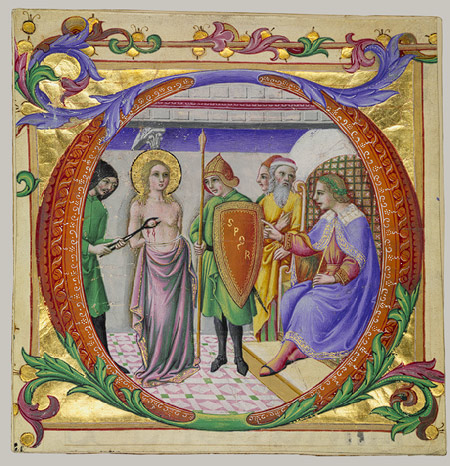Or:
By their fruits ye shall know them
Very rarely people link to this site, presumably because our point of view is so light-years away from the POV of the common mortal that it is impossible for the normie that visits us to cross, in a single jump, the psychological Rubicon without the rosy stepping stones of the Alt-Right.
I think Petr is a Christian, but it is not clear to which ethnic group he belongs. At any event, on The Phora this guy said:
After a long pause, I decided to check out what C.T. is up to nowadays. (I know he is one of the most poisonously anti-Christian net Nazis out there, and I believe in the “know thine enemy” principle.)
And boy, it was an educational, even enlightening experience to see to what depths he and his few hand-around friends have sunk. As a matter of fact, I consider this to be a sort of moral victory; this shows the spiritual dead end that anti-Christian, anti-God WN activism ultimately leads to. They seem have taken the most extreme apocalyptic “Turner Diaries” views of William Pierce and ran with them. Thus they have come to the ultimate reductio ad absurdum of neo-Nazi ideology.
In fact, C.T. and his crew have abandoned not only Christian morality but also any shred of sober pagan morality (“nothing too much,” sophrosyne) and ended up in sheer manic-depressive nihilism. This stuff below is like the nastiest possible Antifa caricature of WNs come to life. I am not eager to “punch right,” but if this were seriously what all Nazis really believe in, then it would be justified not only to punch them, but to hunt them down as hostis humani generis, as the ancient Romans called pirates.
And it’s not just some booze-fueled tough talking or the Daily Stormer-like irony either—C.T. is a humorless fanatic who would clearly like to be taken seriously:
“For an introduction to my exterminationist philosophy see: here.”
But his genocidal fantasies are just impotent wish-fulfillment daydreams, and as such, even more grotesquely pathetic (you should never make threats you cannot carry out). In fact, people like him have now ironically become what Nietzsche caricatured early Christians being like—despised, embittered, resentment-filled losers hiding in dark holes and dreaming of massive vengeance to come. But without any real God to back them up.
All in all, thank God for the Alt Right and WN 2.0. if this is the mentality it freed us from!
Then Petr quotes in toto ‘How Awake Are You?’, the brilliant comment that our friend from the Iberian Peninsula posted last Thursday. Then Petr ended his rant with these words:
And the comments that follow are as pitiful and repulsive (literally so; you feel repelled from the company of such toxic losers) as the piece itself.
The problem with Petr and all those who make a superficial visit to this site is that they do not even read the links that they put themselves. For example, when quoting my words above (‘see: here’), any visitor of true nobility of the soul that clicked on those words would begin to follow the white rabbit. Eventually, he would enter Wonderland and realise that the devils tormenting innocent animals should be removed from the face of the Earth.
Who is the good and who the bad guy: Petr and company or us? Let’s use the parameter of their Jesus to answer the question: By their fruits ye shall know them.
In addition to perpetuating the lives of the devils tormentors, the promiscuous ‘loving’ ideology of Petr & Co. is murdering the fairest specimens of Homo sapiens. On the other hand, if we come to power, our fruits would mean not only the end of the torment of animals but living in the world of Parrish.











